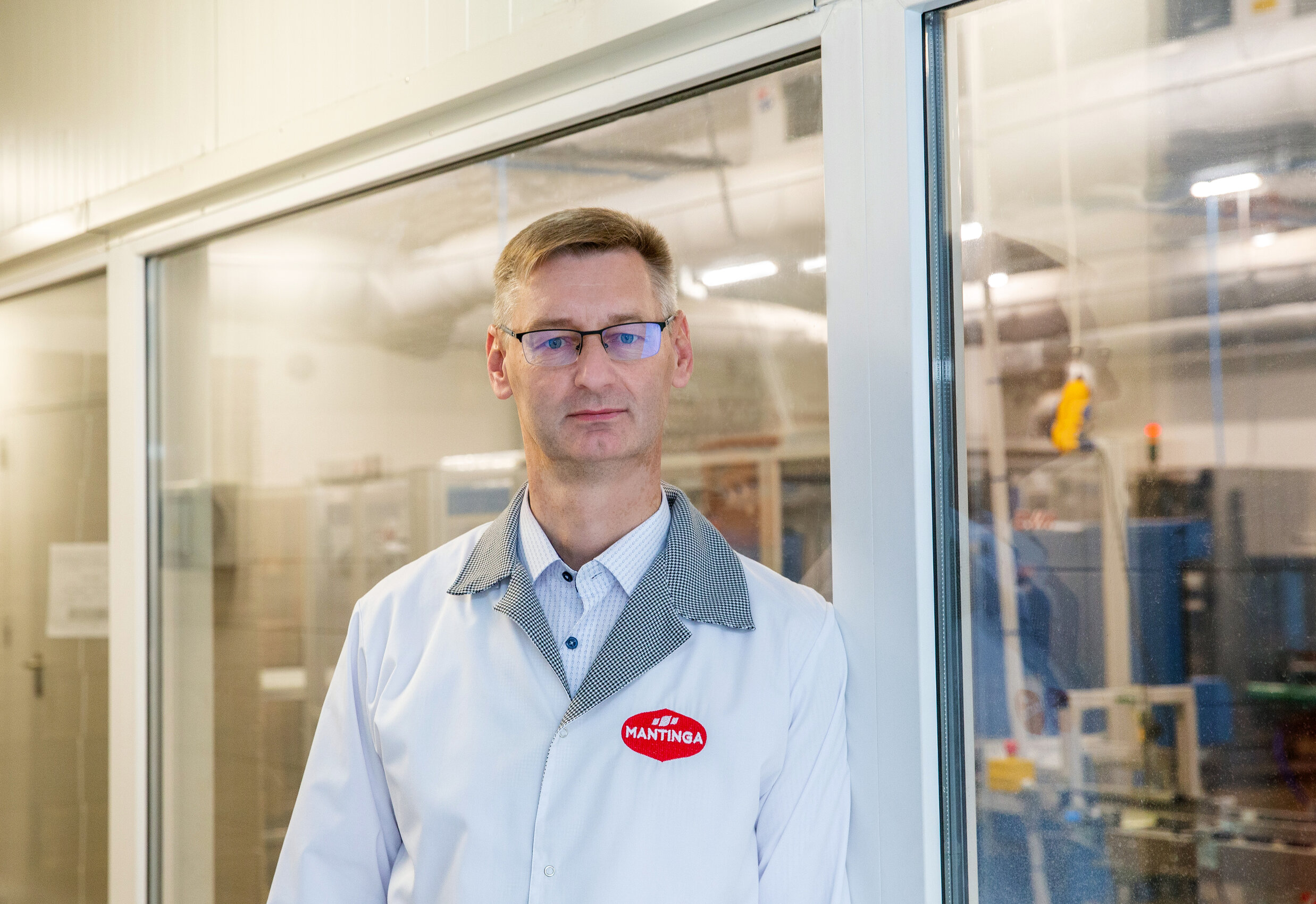February 22, 2023

Most Lithuanians love buns and other confectionery products, but only a few of them know how they are made and how much effort and time it takes to perfect them. Mantinga's Chief Technologist Darius Anelauskas revealed why the buttery croissant is considered as the standard of puff pastry products and that it took 10 years of preparation and a series of failed attempts to make a pastry that is currently in the top 5 of the world.
Anelauskas, who has been working for more than 22 years in the largest bread, snack and frozen production company in the Baltic States, does not hide that the path to the world of buns did not start with the specialty of baker or confectioner.
While still in school, he earned extra money by painting cars and spent his summers in England working in the field of agriculture. It was the work abroad, or rather, the learning and mastering of several foreign languages, that became a springboard for his future career. Having experience in agriculture, he planned to become an agricultural engineer, but completely by chance he ended up in Mantinga.
"At that time, the founder of the company was looking for English-speaking students who could join the first factory operation as production operators after graduation. A new line of layered products was just being installed, for which Swiss specialists were actively consulted. I was probably the only one who understood the foreigners, besides, I understood the principles of production quite quickly, so I not only learned to work with the new line myself, but also later trained other employees. Thus, at that time, a temporary job turned into a professional life journey, which I am on to this day," says Anelauskas, who became one of the company's first technologists.
According to the man, although at first there were doubts about exchanging engineering "for flour", when he got involved with the production and saw that baking buns is related to extremely complex equipment, he no longer hesitated.
The pastry gave up only after 10 years
According to Anelauskas, the butter croissant today can safely be considered as the standard of puff pastry products produced in Mantinga – the production of puff pastry products began from it.
"When I started to delve into croissant technology, I realised that practically every country has its own version: there are French, German or even Spanish-type croissants, so finding the most ideal version was not a simple task. It is one of our best products at the moment because it uses advanced manufacturing technology – if you can bake the perfect croissant, then you can make anything out of puff pastry. For me, the croissant is a sentimental product because it brought me to what I have achieved today," shares Anelauskas.
Adapting the recipe for the pastry with maple syrup and pecan nuts to production took much longer – the one of the most popular baked goods in the world and in Lithuania did not immediately yield to the idea of the chief technologist.
"I first saw this maple pecan pie at an international trade show almost 20 years ago. I knew it was made from Danish dough, but there was no way I could replicate it – we did not have the right equipment for it, so all attempts were unsuccessful. And it was not until the start of the coronavirus pandemic, when the frequency of business trips and exhibitions decreased, that we and our technology team were able to devote much more time to overcoming this challenge. We purchased special equipment, planned the processes, and in half a year we managed to achieve the desired result, towards which we have been working for almost 10 years," says Mantinga's Chief Technologist.
Future bread will not be synthetic
When asked if there is still room for improvement in the field of bread baking, or if everything has already been discovered, Anelauskas answers that the technological progress covering all areas is also important for the bread production.
"There have been various achievements and new things have been discovered from the time I started working in this field, i.e. throughout the last the 20 years. Therefore the more I delve into this and learn, the more I don't understand. So I think that even after many years, new technologies will appear and I won't know just as much as I do now," the interviewee smiles.